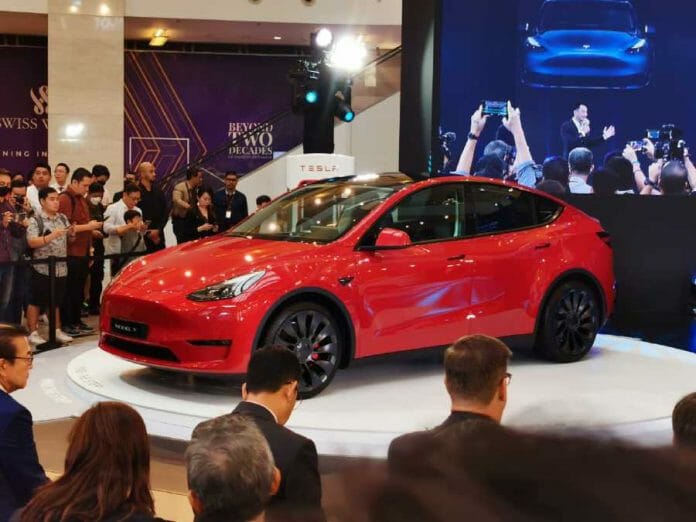Record levels of electric mobility: 2022 saw more electric cars sold worldwide than ever before. Despite global improvements, range anxiety remains a significant issue for customers in Southeast Asia, necessitating further enhancements in the region’s charging network infrastructure.
According to consultancy firm Roland Berger the share of electric cars in new registrations rose to 15% in 2022 and will exceed 50% by 2030. After a slight dip in the share of electric cars sold globally in the first half of 2022, sales started to pick up again in the second half of the year, partly due to lower electricity prices, before reaching a new record high of 15% of the total market by the end of 2022. Electric car sales were highest in China, followed by Europe and the Middle East. More than half of all cars sold are expected to be electric vehicles by 2030. Countries also made good progress in expanding their charging infrastructure last year. Fast chargers now make up more than a fifth of the public charging infrastructure worldwide. Fully 83% of electric car owners said that public charging networks were more convenient to use and easier to access in the second half of the year than in the first half of 2022 (67%).
However, automakers (OEMs) were pursuing different charging strategies depending on the region concerned. These are the key findings of Roland Berger’s fourth “EV Charging Index 2023” based on extensive industry interviews and a survey of 16,000 respondents from Europe, Asia, North and South America, and the Middle East.
“The market for electric vehicles and charging stations is undergoing a transformation. Awareness of sustainable mobility is growing, and electric vehicles are finding increasing acceptance among consumers,” says Ron Zheng, Partner at Roland Berger. “However, the market’s further development depends on closer collaboration between automakers, energy companies and other industry players, both in the nationwide expansion of charging infrastructure and in innovative solutions to meet the growing demands. This will be essential to drive electric mobility forward and create a sustainable future.”
The EV and EV charging markets in Southeast Asia have shown a significant rebound in recent months, indicating a strong recovery from the energy price shock at the beginning of the year. Two Southeast Asian countries, Malaysia and Indonesia, have made significant leaps in their EV market scores, both jumping by 12 points in the fourth edition of Roland Berger’s EV Charging Index.
The improved performance of countries in Southeast Asia has contributed to a rise in the average country score from 45 to 51 points, demonstrating a healthy and growing global EV charging market. The surge in the market is largely attributable to the rapid expansion of charging networks, which is particularly noticeable in Southeast Asia.









